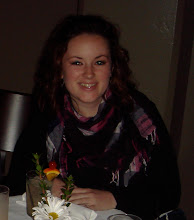I like this theory in general. But all I can continue to think when I read these articles is that they are just that...theories. I understand that they have been practiced and studied and tried out on students, but I would like to know where they are used today. Do students in Nashville still use these practices? And if they are so effective, how come this is not a part of the curriculum across the United States? Surely money could not be a factor. Schools in wealthy districts have money and schools in low-income districts have all kinds of government money for programs to help increase student achievement. So why is money being spent on programs that encourage a lecture and test type teaching instead of a see and do type learning. I could go on forever about that, but I wont get on a soapbox tonight.
I feel like I did something like this in seventh grade, but I dont remember answering follow-up questions or activities, so it is possible that it was just a video that we watched. I have no idea...I just remember it was called "The Voyage of the Mimi."
I like that this is teaching students how to solve problems and that technique can be transferred into lots of other situations. I feel like no matter how many word problems we throw out in front of students, they just dont seem to get it. Practice does not make perfect in this case, it makes frustration.
A random question...did the students in this scenario actually watch "Indiana Jones"? I would have thought that was the best class ever if we could have watched that for "educational purposes" in class.
I really like that the final questions include ideas like...would you like to be a scientist. Things that apply to life and not just...if this, then that...and what happened next...blah blah boring questions.
I like the idea that we teach thinking in a school setting when we really should be teaching how to think the way that it naturally occurs...socially. At my school, so many teachers often say that our students are very street smart...so maybe we need to alternate our teaching approach to line up with their street thinking skills. Two problems I can think of...most of us that work at the school, while we care deeply for the children and really want them to learn as much as they can...have never experienced what these children have so we may not be able to approach them in that way. I have never seen anyone shot as several of my students have, I have never been without a house or food, or electricity. So how could I possibly teach computer skills from the social context that these students are used to. Problem 2...I think that everyone would have to be on board with this idea and as most teachers like to be in charge and do things their way...it is hard to get 25 different teachers to get on the same page and teach the same way. Some days it is hard to get 3 teachers to teach the same objectives. :)
In the Jasper Experiment article...I like the "community of inquiry." My favorite days of teaching are when we start talking about exporting items on a computer and then end up learning about a new bridge that is being built in China and finding out when the candlestick telephone was invented and how a bank works and everything on earth besides what my lesson was about. I love it when the kids get so into learning that we just talk and search the internet and find all the information we can about whatever it is that they do not know. Last week, I gave the kids websites to search for science experiments and they just thought it was so cool to go online and find ideas for the science fair. To me that is the when the best learning takes place, when we are asking questions and discovering answers...especially questions that I dont know the answer to. I think the kids enjoy that too because their questions are being answered and they feel like they are just as smart as the teacher...b/c I dont know the answers either. :)
